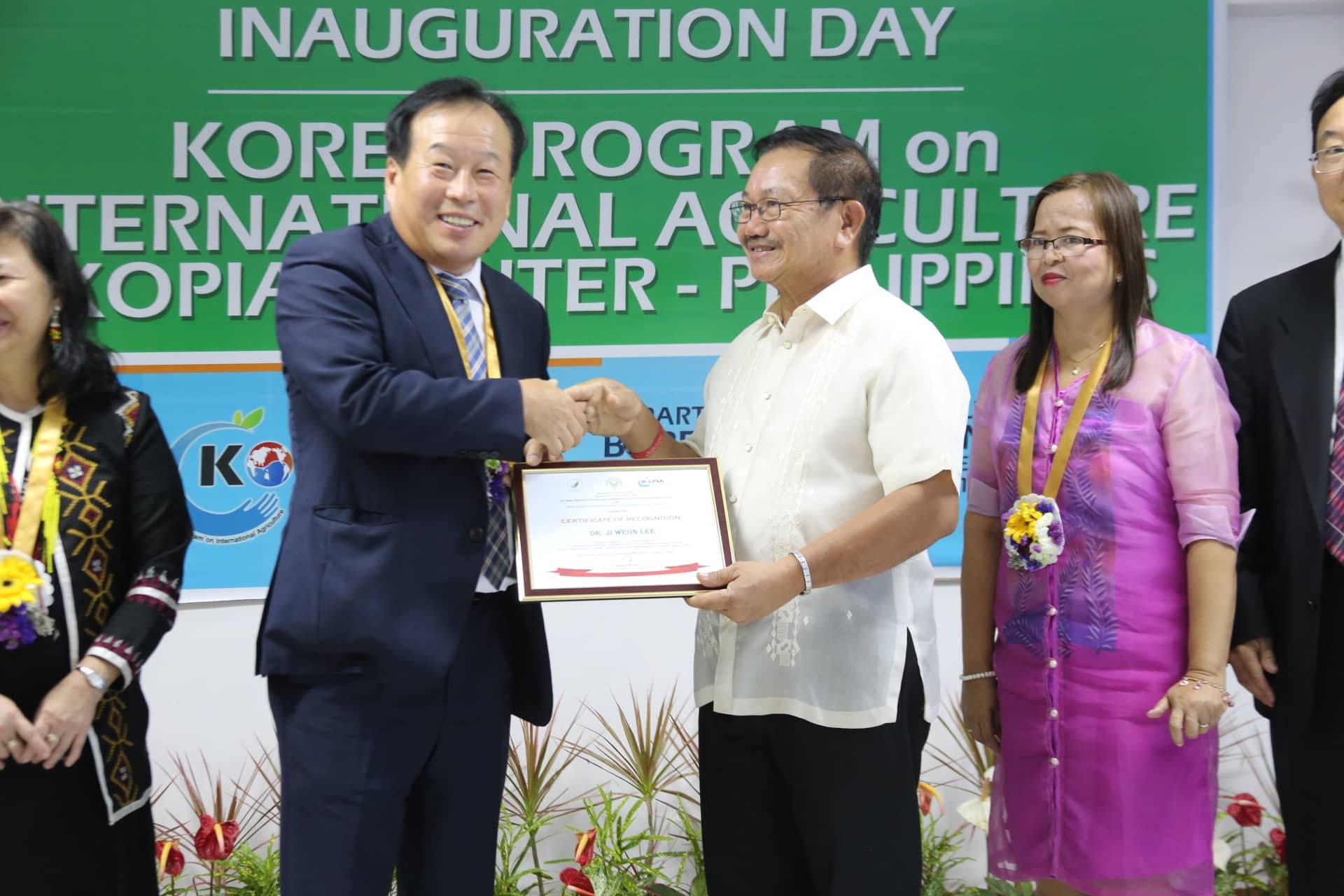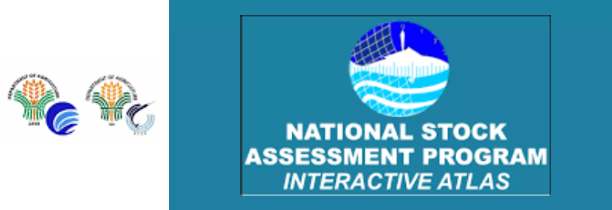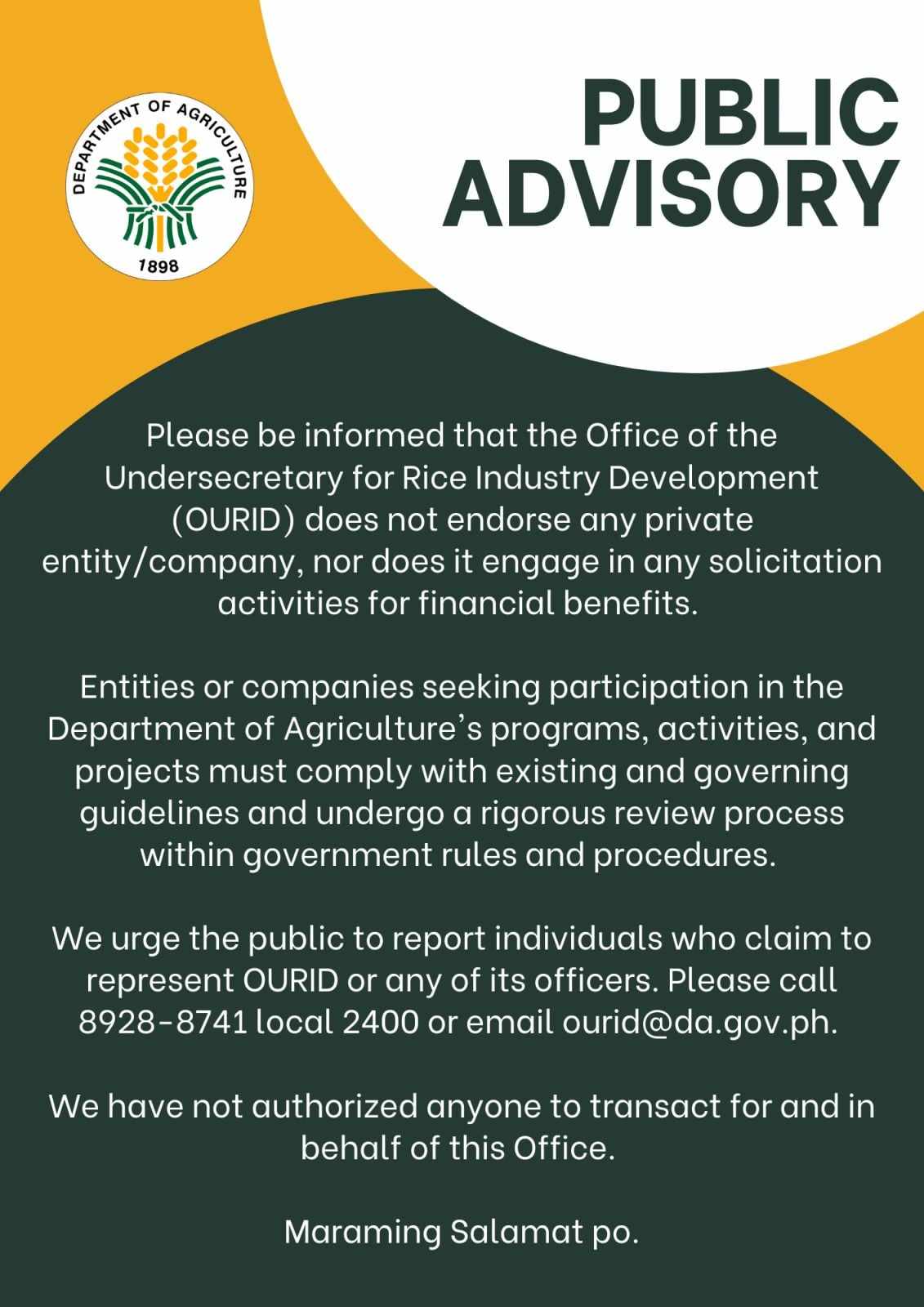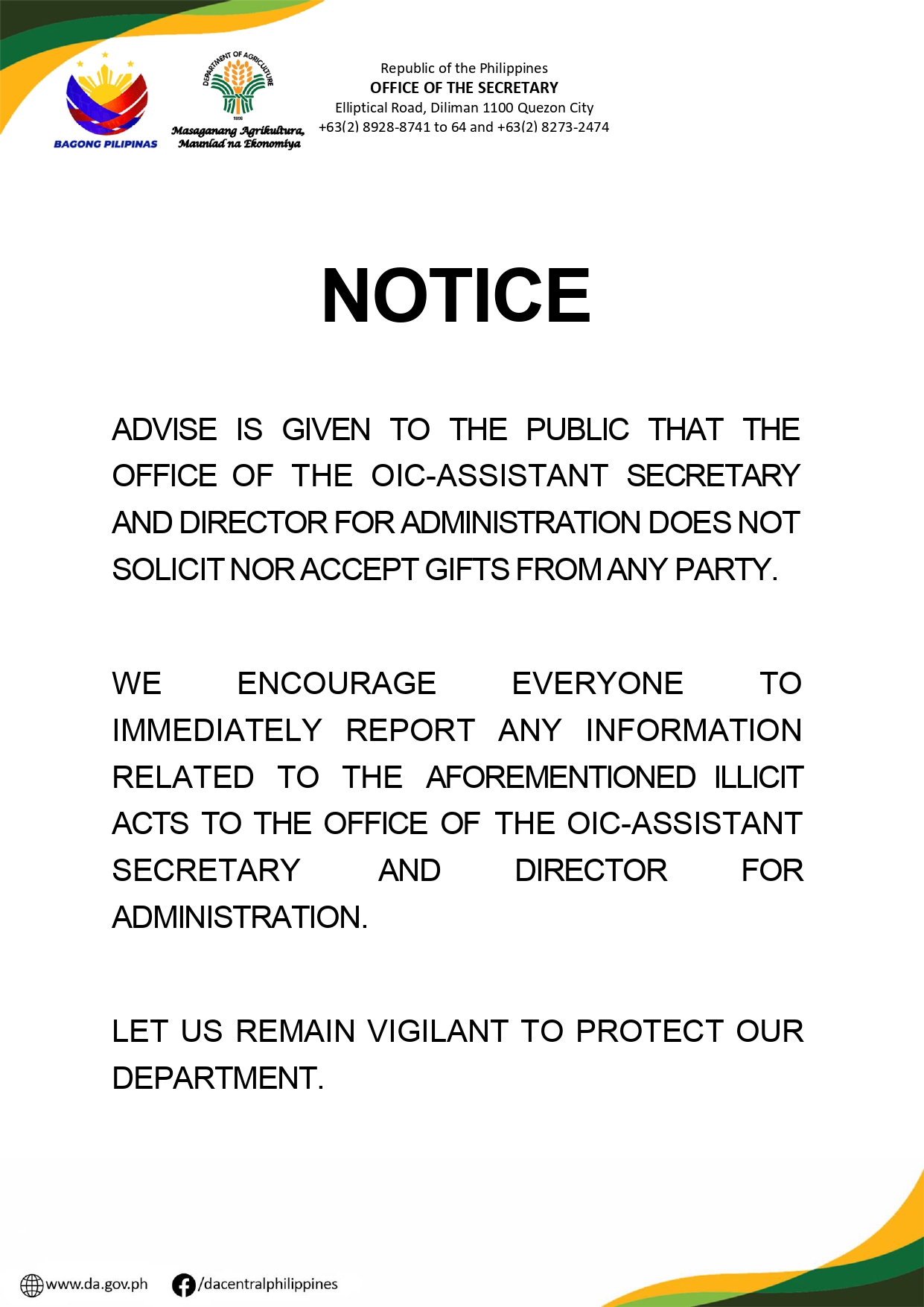
To further extend its support services, research and knowledge transfer to the Filipino farmers, the Korea Program on International Agriculture (KOPIA) officially inaugurated its new KOPIA Center Philippines office at the Bureau of Plant Industry Los Baños Laguna on August 30, 2018.
Agriculture Secretary Manny Piñol who was present during the inauguration shared the importance of the long-term partnership between DA and KOPIA.
“We can learn a lot from the Koreans. Their farmers are very well organized and well represented. Their competent farmers’ groups engage in various aspects of agriculture including banking, crop insurance, logistics, and production support,” he said.
KOPIA was established through a Memorandum of Agreement signed by Korea’s Rural Development Administration (RDA) Korea, and the Philippines’ Department of Agriculture (DA). It aims to enhance the capacity in rice research and development as well as boost its production while sharing agricultural technologies to help attain rice self-sufficiency.
The KOPIA center is said to be a symbol of South Korea’s support and gratitude to the Philippines for sharing its farming technologies and for developing the rice seeds that helped the country alleviate hunger and malnutrition in 1970s. During that time, the increasing disparity between urban and rural villages were ballooning to the point that hunger, poverty, and unemployment was prevalent in South Korea.
The support provided by KOPIA is patterned in the Saemaul Undong (New Community movement) of Korea anchored in the three basic traits: Diligence, Self-help, and Cooperation which is the same movement that made what South Korea is right now.
KOPIA Center is the implementing unit for the “Capacity Enhancement in Rice R&D and Rice-based Crop Production for Philippine Food Self-Sufficiency and Farmers’ Income” project covering the following areas: (1) Research and development on rice and other crops after rice; (2) Training and education of researchers, extension officers, and farmers; (3) Dispatch of Korean experts and scientists at the host institution; and (4) Exchange of research materials and technical information.
“Philippines face a unique challenge on the law of supply and demand. We have the supply but it is being held by the traders who, sadly, are dictating the buying and selling price in the market.” Piñol said.
The agri chief, however, assured everyone that DA is working fervently to mitigate the effects of the “artificial shortage” of some commodities and high prices in the market.
“We expect a price drop especially on rice as we are approaching the harvest season this September to October.” He added.
South Korea, despite having limited lands to till for farming, is rice self-sufficient and exports many types of agricultural commodities. It has one of the most modernized agriculture sectors in Asia. The country first attained its self-sufficiency in grains in 1975, which is only five years after the Saemaul Undong movement was launched. ### (Carlos Cezar Baldosa, DA-AFID)















